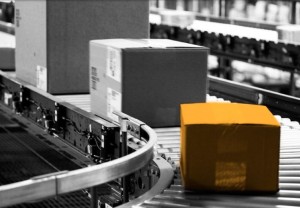Understanding the Difference between 3PL Providers and Freight Forwarders
 In the world of global transport, understanding the differences between supply chain management, freight forwarders and 3PL Providers (3PL) is key. In order to make the best decisions for a company’s transportation and supply chain needs, knowing the difference is vital to the safe and successful transportation of goods from the manufacturer to their end destination.
In the world of global transport, understanding the differences between supply chain management, freight forwarders and 3PL Providers (3PL) is key. In order to make the best decisions for a company’s transportation and supply chain needs, knowing the difference is vital to the safe and successful transportation of goods from the manufacturer to their end destination.
Freight forwarders move freight from one destination to another, be via road, rail, air or ocean. Third party logistics companies may perform freight forwarding services simply by providing their common services: moving, storing and processing inventory. Both services relieve a company of managing the minutia of transportation, its paperwork, changing of freight providers, adhering to regulations and for some, paying of duties.
Freight forwarders specialize in the moving of freight. They are experts in this part of the overall supply chain. Freight forwarders are not always the transportation companies themselves (although they can be), but more often than not contract with various carriers to ensure maximum options for their clients. Freight forwarders may choose to work both domestically and globally, therefore working with all modes of transport. Or they may choose to specialize even further and only work within the domestic space or international space.
Third party logistic providers help move the cargo as mentioned above, but then add extra services, such as storing cargo between transport steps and processing shipments. Many clients ship their cargo from arrival to various warehouse or distribution centers. 3PL Companies will take items from the transport vehicle and package it with an invoice per each client drop off. Like a freight forwarder, 3PL providers also work with various authorities and carriers to process paperwork, waybills and invoices as well as paying any fees on behalf of the client.
Both providers will perform the necessary service of ensuring cargo arrives in good condition and meets all regulations and any duties or fees are paid. But 3PL Providers will perform additional services based on client need. There is a need for both in the supply chain and deciding which is best is based on company needs, budget, current orders and forecasts. As with any other service provider, the company must first perform an internal analysis to see what is truly needed and where possible cost savings by outsourcing will come.
Many clients may find that working with a freight forwarder partner who also provides 3PL services is a beneficial way to manage transportation needs when working with an outside vendor. Knowing that basic freight needs will be accomplished, but there is also the option to add services creates a value added benefit.